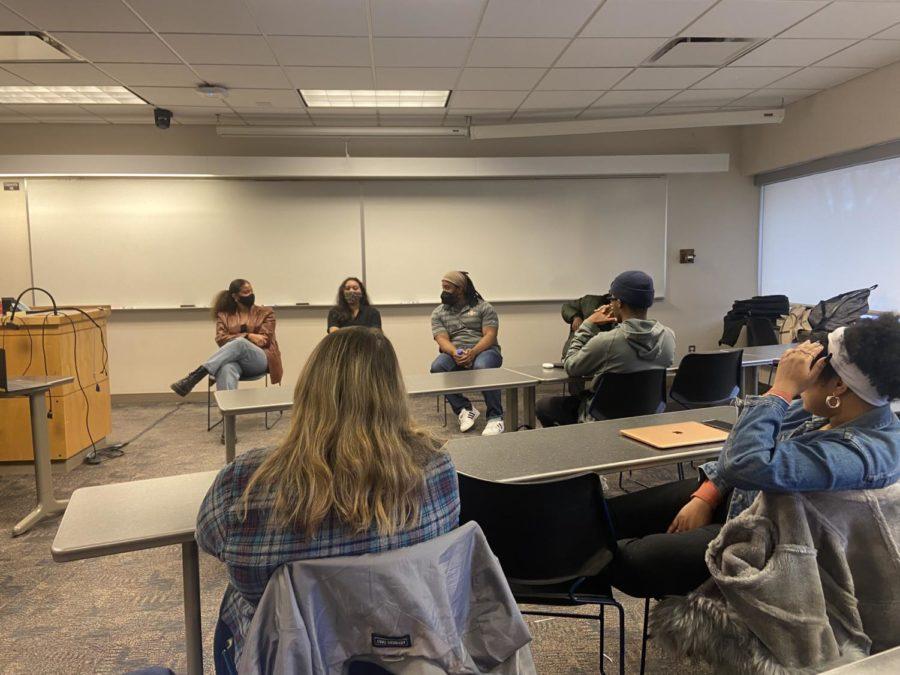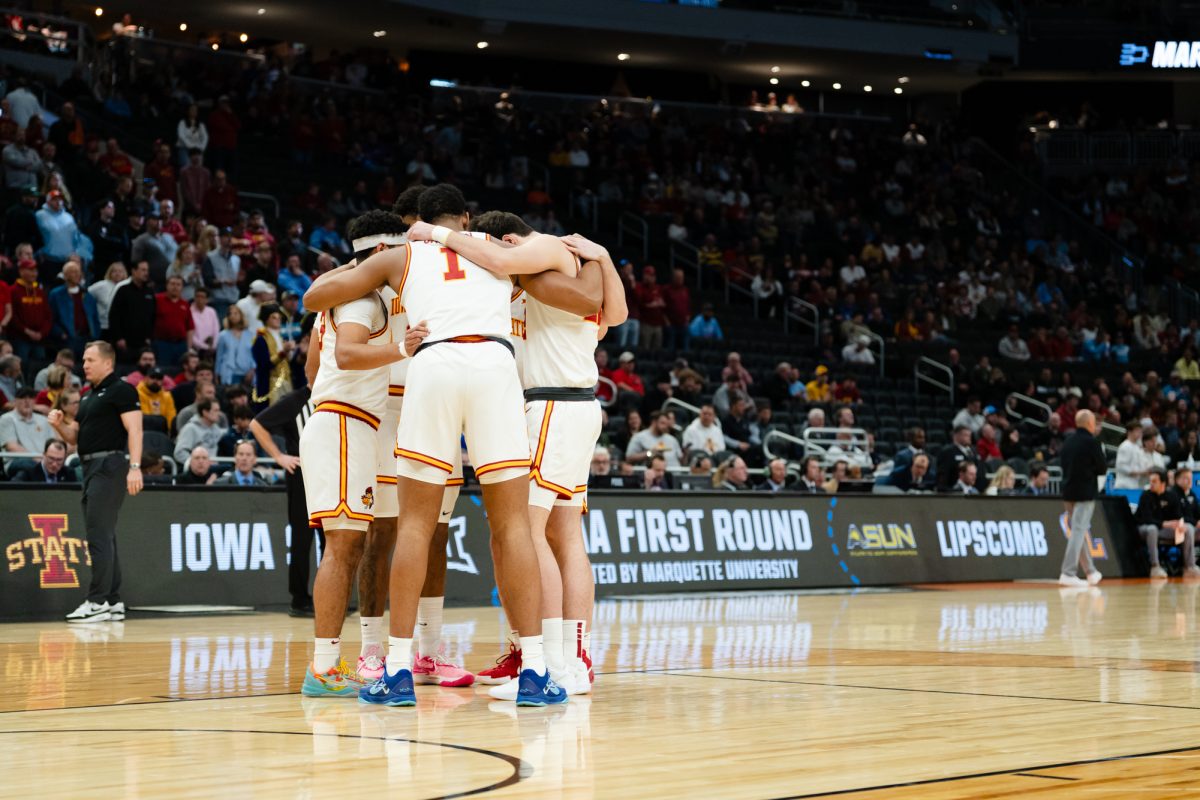Multicultural Student Success hosts Black Mental Health Panel
Kaitlyn Richardson/Iowa State Daily
Black Mental Health Panel photo
February 9, 2022
As part of the Black History Month series, the College of Liberal Arts and Science (LAS) Multicultural Student Success (MSS) held the Black Mental Health panel on Feb 9. The panel included four students, taking both guided questions from the organizers as well as audience questions and dialogue.
The first question from the guided questions discussed the concept of how the panelists came to understand the importance of their own mental health.
“I realized, losing my grandmother some years ago, that mental and emotional health I had never acknowledged them before,” panelist Jordan Brooks, a second year graduate student in social cultural studies and education said. “I think I was taught, or socialized by my peers, as a male, I was told to move on and do what you do.”
Another Panelist, Alyannah Buhman, a senior majoring in criminal justice, discussed how her journey began quite a bit differently, with having to recognize her need for a lifestyle change.
“Throughout high school I was very go, go, go, I pushed my mental health to the side a lot to get done what I wanted to get done and achieve what I wanted to achieve,” Buhman said. “My senior year I really realized that I had to slow down and as much as I wanted to be able to do everything at once, that was clearly not attainable.”
Bunhan also discussed how this change in mindset was inspired by an unexpected medical diagnosis.
“Diabetes takes up a big physical toll on you but it also takes a mental toll, having to deal with that kind of illness every day,” Buhman said. “It really taught me patience. You have to be patient with yourself, you have to listen to what your body needs and not only what your body, what your mind needs.”
Another key discussion among the panelists were the stigmas they faced surrounding mental health.
“The stigma that we have to hold it in all the time,” Buhman said. “[As] people of color we have to do the most just to achieve the bare minimum and just to achieve what our white counterparts achieve. So a lot of us sacrifice our mental health and we sacrifice ourselves to meet that agenda. So that’s the biggest stereotype that I feel like I had to combat is that I don’t need to sacrifice who I am or my identities or my ethnicity or my mental health to achieve that agenda.”
Brooks, as well as panelist Taylor Moore, a junior in sociology, discussed the importance of having honest conversations with peers, as well as the struggles that come along with that.
“One of the most frustrating parts is when you have to express your mental or your emotions, I think there isn’t a lot of people who can receive that and understand that,” Moore said. “So when you actually have those moments when you need to get that out, you feel very small when you’re trying to explain to people what’s going on. It can become very frustrating because the one time you do it, people don’t listen. And then you bring it all back and you hold it in all over again. So trying to figure out when to do it and where to do it, that’s a whole other conversation.”
The panelists then offered advice to Black students who are struggling with mental health.
“Most of the time when people ask how we’re doing they say ‘oh I’m good’ and most of the time, we’re not good. ” Buhman said.”Be honest. If you’re struggling with your mental health, and someone says, ‘Hey how are you doing today?’ I’m honest now.”
On top of being honest with others, Moore discussed the importance of being honest and realistic with yourself throughout the healing process.
“You’re not going to cure your mental health in a week, a couple weeks, a month, a couple months, a year, because trauma runs deep,” Moore said. “There’s no telling how long it could take you so one day you could conquer the world and the next day you might not be able to brush your teeth.”
Panelist Lillian Rocha, a senior in psychology, emphasized that you do not have to do it alone.
“One thing that stood out to me was going to see a counselor does [not] mean that you’re sick,” Rocha said. “It doesn’t mean that your mental health is so bad. It just means that you’re getting someone in your life with an unbiased opinion.”
The panelists also offered suggestions such as practicing skin care, art, music, cooking, hanging out with various friend groups, exercising and changing your diet to utilize as ways to care for your mental health.
One audience member asked the panel about what they do to advocate for the general concept of mental health, to which Brooks discussed a project he is working on as the Director of Multicultural Student Success for the College of Design.
“We just created a centering room within our college,” Brooks said. “The centering room is supposed to be a space that people can go to meditate and pray and just have that moment to themselves when they need it.”
Another audience member asked the panel how to approach the issue of not being considered “Black enough” or “white enough” when being multiracial.
“Just because I don’t fit into, you don’t fit into the stereotypical box doesn’t mean you are any less anything and don’t let anyone tell you that,” Rocha said.
The event proceeded with a continuation of dialogue between the panelists and audience, with topics such as mixed racial relationships, intergenerational struggles and many other issues people of color have to face.
“You’re in this time but your experience is not ahistorical,” Brooks said. “There are still the things we have to deal with because some of these things are not actually gone.”







